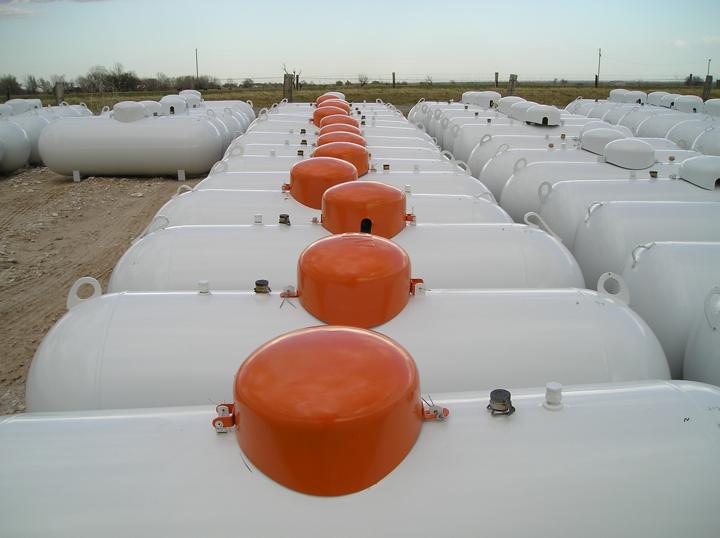
Tariffs that took effect Tuesday targeted all products from Canada and Mexico, hitting particularly hard in Maine, where residents depend more heavily on heating oil than in any other state.
President Donald Trump slapped 25% tariffs against all goods, with energy facing a 10% tariff.
“The most immediate impacts are in energy,” said Patrick Woodcock, president and CEO of the Maine State Chamber of Commerce and ex-director of the Maine Energy Office and former Massachusetts commissioner of energy.
Consumers of heating oil and propane will feel the hit by the end of the week, he said, and households that are struggling to make their payments will now pay 10% more. “This will be a hard pill to swallow,” Woodcock said.
The statewide average price of heating oil as of Feb. 24 was $3.80 a gallon and $3.93 in southeast Maine and the Portland area, according to the Governor’s Energy Office. It peaked at $5 a gallon statewide in March 2022, weeks after the invasion of Ukraine by Russia — both major natural gas producers — roiled global energy markets.
More than 80% of heating fuel and gasoline is imported to the state from Canada, Gov. Janet Mills said in a written statement on her website.
“When Maine businesses have to pay higher tariffs to import materials they need, building supplies or other things or pay to export their finished products, they will be forced to pass those costs along to Maine consumers at a time when we can least afford it,” she said. “These tariffs clearly will result in higher prices on everything from fruits and vegetables, flat screen TVs, and auto parts and building supplies. ”
“I can’t be clear enough. The president’s broad tariffs on Canada as well as China and Mexico will increase costs on Maine families and Maine businesses who can ill afford them and they will cause great harm to our state’s economy,” the governor said.
Prime Minister Justin Trudeau said Canada will retaliate with a 25% tariff on $155 billion of U.S. goods, starting with $30 billion of goods immediately, and on the remaining $125 billion on products in 21 days.
“This is a trade war, yes,” Trudeau told reporters Tuesday, adding that Canadians would continue booing America’s national anthem, buying Canadian goods and avoiding traditionally American products like bourbon.
“Canadians are hurt, Canadians are angry,” he said. “We’re going to choose to not go on vacation in Florida, or Old Orchard Beach, or wherever.”
In response to the tariff, Irving Oil on Tuesday raised prices in some key New England markets where it sells gasoline and diesel, oil analyst Tom Kloza wrote in a news story published by Oil Price Information Service.
“The company is now priced considerably above competitors in those markets,” he said.
Irving’s price for ultra-low sulfur winter distillate in Bangor was about $3.17 a gallon Tuesday following an overnight increase of 26.4 cents, Kloza said.
A spokeswoman for Irving did not respond to an email Tuesday asking for a comment about the higher prices.
Energy prices have an impact on nearly all operations that power the economy, including transportation that carries consumer and industrial goods, as well as heating and cooling for homes, offices and factories.
The tariffs also will affect the Maine Trust for Local News, which publishes newspapers across the state, including the Press Herald, and other states. Newsprint comes from Canada, and although enough is on hand to cover the next two months, Maine Trust Managing Director Stefanie Manning said the next time the company has to make a purchase, the cost will be 25% higher.
The increased cost will be passed on to the Maine Trust’s commercial printing clients, Manning said.
Trump had threatened tariffs in early February on all products from Canada, China, and Mexico, which he says aren’t doing enough to stem the flow of illegal migrants and drugs. After Mexico and Canada promised measures such as sending more troops to their borders with the U.S. and, in the case of Canada, appointing a “fentanyl czar,” Trump paused their tariffs for one month.
While energy prices are expected to rise very soon, the impact of tariffs on electricity is less clear.
ISO-New England, the region’s grid operator, said it estimates it would be on the hook for $66 million to $165 million a year to pay a 10% to 25% tariff on electricity imported from Canada.
Andrew Price, president of Competitive Energy Services, a Portland consulting group, said the dollar amount spread across New England is a “relatively modest increase.”
ISO provided the estimate in a Feb. 26 letter to New England state officials and an advisory group of energy officials, advocacy groups and others.
If ISO New England is assigned the responsibility of collecting payments, its legal document spelling out the rates, terms and conditions for transmission and other services does not provide guidance on how the ISO would collect duties “nor do we likely have sufficient cash on hand to pay them.”
“In a worst-case scenario, the ISO could be forced to seek bankruptcy protection and the federal government could restrict or ban Canadian electricity imports into New England until the duties are paid,” it said.
ISO asked the Federal Energy Regulatory Commission last week to establish a process to assess the cost of duties that may be applied to imported electricity from Canada. The process would only kick in if a federal agency required ISO to pay the duty, and it’s intended to be temporary, allowing 120 days for the ISO and others to file a different process specific to terms and conditions of the tariff.
Price said it’s “entirely unclear if the tariff on energy imports from Canada applies to electricity, and if it does apply it is unclear who collects the tariff, how the costs will be calculated and how costs will be passed through once they are collected.”
As a result, his clients, which include colleges and universities, municipalities and health care providers, are asking if the tariff would affect their operations.
“All we can really tell them is the status today and we’ll keep watching for them,” Price said. “There’s a fair amount of uncertainty. It creates some administrative headaches. Everyone is asking for memos and cost estimates.”
Original Story Link
